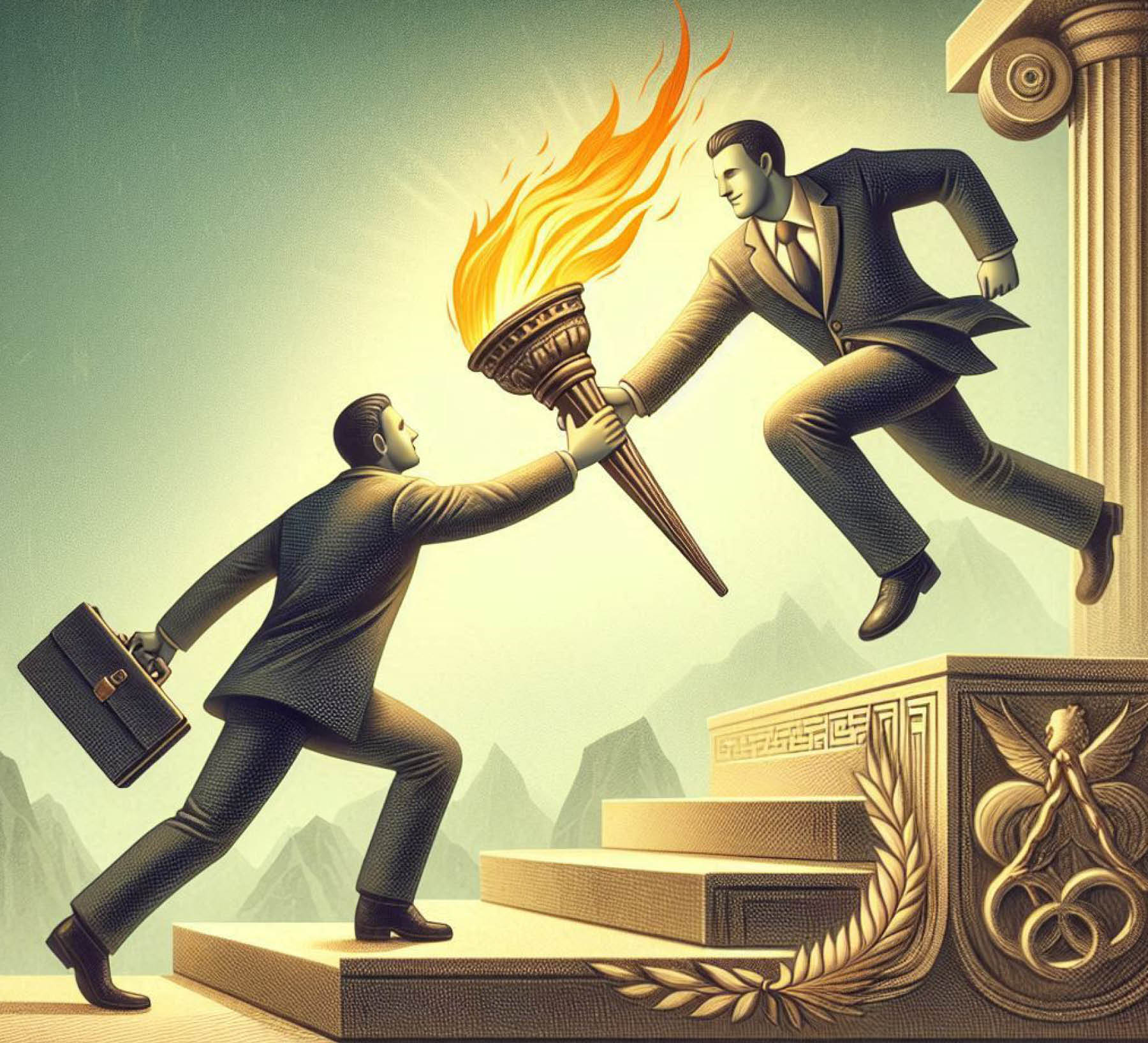This is how CEOs can embrace the Olympic spirit

On Friday, 26 July, the Olympic torch will wind its way through the lively streets of Paris and the heart of the Olympic Village before making its grand entrance at the Opening Ceremony.
The Olympic flame, a symbol of continuity between ancient and modern Games, started out as a ritual every four years to honor the Greek god Zeus. It has since become a signal for the start of the Olympic Games and is used to transmit a message of peace and friendship along its route. But what can CEOs and organizations learn from the Olympics?
The Olympic Torch relay is responsible for respecting the past, protecting the present and leaving the world in a better place. To ‘Carry the Torch’ is about continuing a legacy and building succession. You have the responsibility to receive the torch, carry the torch and pass the torch.

It is your responsibility to receive the torch with gratitude, respect the past and respond with grace.
Just like Jongka, a tradition in Korea where the eldest son’s role is to keep their family lineage alive, or debuting as the next All Blacks rugby player with the responsibility to leave the jersey in a better place, a CEO is expected to carry the torch and leave the company in a better place.
They have a responsibility to be a custodian who can positively transition from the past to the present and into the future.
Multiple legacies
CEOs are handed more than one torch when accepting the role.
They have a responsibility to look after an organization or family legacy, the CEO’s legacy, the legacy of the team they lead and an industry legacy.
To carry the torch involves much more responsibility than merely just enhancing the legacy or the torch you’ve been handed. Some torches we’re excited about, some we want and others we didn’t even know we’d been handed.
So, let’s look at this through a CEO lens. It is your responsibility to receive the torch with gratitude, respect the past and respond with grace. Be grateful and say thank you for the opportunity and responsibility you’ve been given to lead a team, organization and an industry.
We are handed a torch as a CEO. Our job is to never let the flame go out.
Respect the previous CEOs and organizations directions and decisions, as you didn’t walk in their shoes. And whether you agree or not, they paved the platform you’re now on.
Acknowledge the work that has been done to this point by being graceful in the way you respond to and speak about the history of your role, company and industry.
Carrying with care
We must ‘Carry the Torch’ by protecting it with care, having the curiosity to learn and the courage to evolve. It is not our right to destroy the legacy that has been built so far. It is our responsibility to protect what has been created with care.
But care doesn’t mean keeping everything that has been built. It means having the curiosity to learn what the core of the company is, what’s working well and what can be enhanced to remain relevant and viable. Do you have the courage to create a better legacy and future?
The most challenging part of creating a legacy is how we pass the torch when we hand it over to someone else. When you pass the torch onto a new CEO or the next generation, can you trust and surrender?
There are also times when we leave a role on terms that are not ours. But rather than pass the torch with bitterness and anger, will you pass it on in a positive way with integrity and humility? Will you have the presence of mind to respect that the person to whom you’re passing the torch will see the opportunity through a different lens?
Stepping out of something we love or have been part of for a long time can be very challenging. We want to let go, but it’s difficult. Our ability to trust the person receiving the torch and surrender our connection to it is critical.
To the new CEO, it is a gift of the freedom to be themselves without someone looking over their shoulder. And it allows the outgoing leader to focus on what’s next and trust that the legacy is in safe hands.
We are handed a torch as a CEO. Our job is to never let the flame go out.